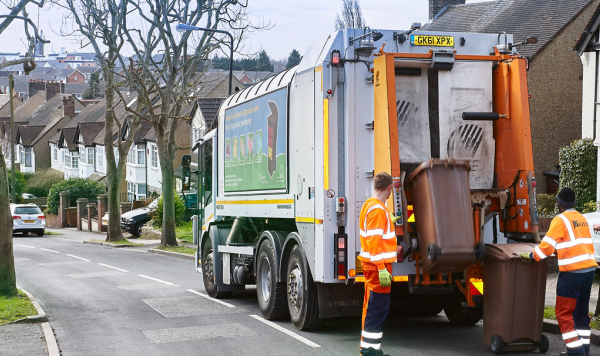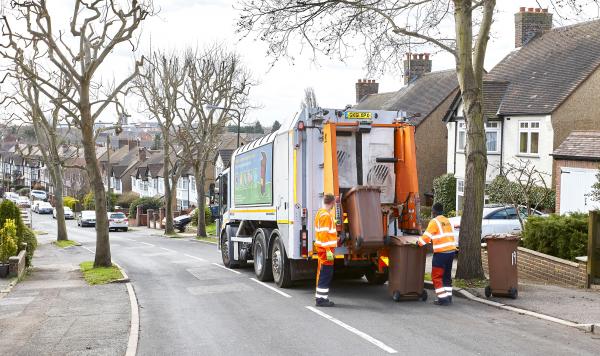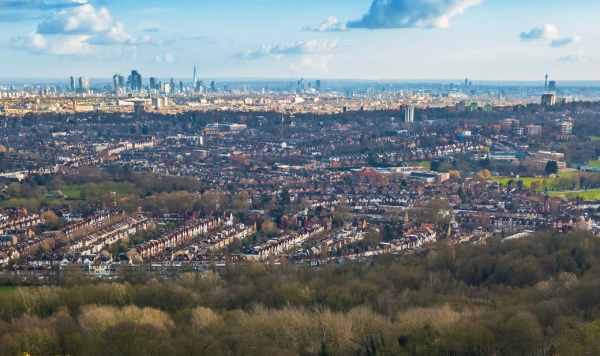Request
Edmonton Constituency Labour Party - NLWA meeting 24.6.21
DEPUTATION STATEMENT
The NLWA must carry out a full, independent, transparent and statistically reliable environmental and social impact assessment of the proposed new Edmonton incinerator taking account of:
a. individual local councils’ climate emergency commitments;
b. the UK government’s 2050 net-zero commitment;
c. the UK Government’s ‘sustainable finance’ strategy.
d. the expected change in waste streams due to increased recycling rates;
e. the changing fuel mix in the UK energy market and shifts in attitudes of consumers and energy suppliers away from purchasing energy created through incineration of household waste;
f. Alternatives to incineration and landfill, through a review of best practice from other cities and considering new technologies being developed for reprocessing domestic and commercial waste;
g. the links between air pollution and increased negative impacts on public health
Any environmental and social impact assessment that has already been carried out is insufficient unless it has taken all the above points into account.
We call on all NLWA board members asking them to collectively:
• pause and reconsider the redevelopment and expansion of the Edmonton Incinerator.
• put on hold all contracting processes.
• postpone funding the project until there is a democratic and scientific agreement between all parties, including the general public.
• consult widely with communities and residents of North London on different options for waste prevention, recycling and management.
• commission a fully independent scientific investigation into the effects on public health, climate change impacts and alternative solutions.
• review the business case and provide an independent and rigorous cost benefit analysis for the plant and its alternatives.
Response
14 July 2021
1b Berol House, 25 Ashley Road Tottenham Hale N17 9LJ
enquiries@nlwa.com
nlwa.gov.uk
Ms Helen Karamallakis
Dear Ms Karamallakis,
Thank you for taking the time to raise your deputation to the North London Waste Authority (NLWA)
meeting on Thursday 24 June 2021.
I appreciate you bringing forward your views in relation to the North London Heat and Power Project
(NLHPP) and setting out the issues you wanted to draw to Members’ attention. The Authority Members
take seriously their responsibility to protect public services, public health, and the environment,
and these matters have been carefully considered in developing the NLHPP.
As promised in the meeting, I would like to take this opportunity to respond in writing and assure
you that all aspects of the NLHPP are thoroughly considered by the Authority and have been tested
and approved through an independent public inquiry process. This letter provides more detailed
information on the project in relation to the topics you have raised.
In your deputation you asked that NLWA carry out an independent assessment for the NLHPP which
considers its environmental, social and air quality impacts.
NLWA shares your concern about environmental, social and air quality issues. This is reflected in
the careful planning and thorough analysis that was undertaken for the NLHPP.
Comprehensive environmental, social and air quality analysis has been undertaken for the NLHPP. A
2,000-page Environmental Statement was prepared for review by the Secretary of State before
consent was granted for the NLHPP. The Environmental Statement was subject to an Examination in
Public and reviewed by the independent Planning Inspector, who recommended that the Government
grant consent for the project. The full documentation is available publicly via our website
northlondonheatandpower.london.
An extensive assessment of air quality was prepared as part of the Environmental Statement. This
considered all the relevant emissions related to the energy recovery process. This includes oxides
of nitrogen; carbon monoxide; volatile organic carbons; sulphur dioxide; particulate matter and
fine particulate matter; hydrogen fluoride and hydrogen chloride; ammonia; dioxins and furans;
trace metals (lead, arsenic, cadmium and nickel); and benzo(a)pyrene. The study modelled the ‘worst
case scenarios’ of emissions from the facility – levels that in reality are likely to be much
lower. This published analysis shows categorically that no concentrations of pollutants from the
facility will breach any air quality or public health standards.
This specific study for the NLHPP is supported by Public Health England’s position, which is that
modern, well run and regulated EfWs make a very small contribution to local concentrations of air
pollution and are not a significant risk to public health.
A Health Impact Assessment was undertaken to analyse the project’s impacts on society. It too was
reviewed independently as part of the DCO process. The Assessment concluded that the Project will
support the London region in managing waste sustainably, minimising the use of natural resources,
recovering energy, and preventing waste ending up in landfill. It also emphasised the positive
impact that the development of a visitor centre would afford local communities, particularly local
school children. The Planning Inspector stated in his Examination Report that: “I conclude there
would be no significant socio-economic impacts arising from the proposed development”.
In your deputation you asked that NLWA assess the facility’s climate impact.
NLWA shares your concern about climate change and we are committed to taking action in north London
to tackle the Climate Emergency. A detailed carbon impact analysis has been carried out for the
project – available online here. The report concludes that the new Energy Recovery Facility will,
through the provision of combined heat and power, save up to 215,000 tonnes of CO2e every year
compared to landfill. This is equivalent to taking 110,000 cars off the road per annum. NLWA is
proud to be serving its residents in an environmentally responsible way, by building one of the
most carbon efficient facilities in the UK.
The NLHPP aligns with the UK’s Net Zero plan. The UK’s Climate Change Committee is clear that no
biodegradable waste should be sent to landfill at all by 2040, and zero biodegradable waste by the
mid-2020s. Energy from waste is clearly identified by the CCC as the method for residual waste
management during the Net Zero transition, allied with Carbon Capture, Utilisation and Storage
technology by the 2050s.
The waste sector has achieved the greatest reductions in greenhouse gases of any part of the
economy (around 70%). This has arisen principally through the use of energy from waste technology
in place of landfill. This is acknowledged by the CCC.
Furthermore, in its June 2021 Progress Report to Parliament, the CCC states: “Waste sector falls
were driven exclusively by reductions in landfill emissions. Waste emissions fell by 28% from 2009
to 2019, but this was primarily due to the landfill tax diverting biodegradable waste away from
landfill to other waste treatment, particularly Energy from Waste (EfW) incineration”.
In your deputation you requested an independent cost benefit analysis for the NLHPP.
The Authority keeps under review the successful and cost-effective delivery of the project. The
alternative treatment of landfilling the waste has been costed and this would be an additional
£15 million to £26 million per annum from 2027. This would be an unacceptable cost increase for our
residents and undermine our efforts to tackle the Climate Emergency.
NLWA provides services at a lower cost to residents than other equivalent waste authorities. NLWA
is therefore confident that it offers good value and will continue to do so in the future.
As part of this commitment to good value, the project has earned favourable borrowing rates from
the Government, as a result of a competitive bid to borrow £100m at reduced interest rates. This
achievement was based on a rigorous value for money exercise of the bids for this funding,
following HM Treasury guidelines, which validated the project’s extensive environmental and
financial benefits for north London’s residents.
In your deputation you requested an analysis of the alternative options.
The analysis of alternatives has been undertaken and all options have been carefully considered by
boroughs and NLWA over many years. The conclusions are available here via the Alternatives
Assessment on the NLHPP project website.
I have provided an overview here on the alternatives that have been suggested to the Authority and
explained why they are not suitable for north London’s requirements.
NLWA carefully considered the alternative options as part of the consenting process. The other
options simply do not work at the scale we need. They also pose significant environmental and financial risks.
• Landfill is significantly worse for the environment and more expensive
• Using third party energy from waste facilities is more expensive and would add thousands of
lorries to the roads, which would require journeys of 80-200km. This is not compatible with self
-sufficient waste management in north London and would result in additional road traffic emissions
• Advanced thermal treatments such as gasification and pyrolysis are unproven at the scale we
need and have not established a reliable track record
• Mechanical biological treatment is more expensive and produces fuel that needs to be burned
away. MBT is beset with issues when it comes to extracting quality materials for recycling.
Reported recycling rates in existing plants range between 1% and 18%, and recycling perf ormance
has consistently been below contracted levels.
• Anaerobic digestion and materials recycling are already used by NLWA to treat organic waste,
but it can’t be used for non-recyclable waste
The Authority carried out a further options review after the DCO application was made. The report,
North London Heat and Power Project Summary Paper on Options, is available on the Authority’s
website here. It concluded that the NLHPP represents the best solution for north London for a range
of factors, which together include cost, technological performance, environmental outcomes and
socioeconomic benefits.
In your deputation you asked the Authority to pause and reconsider the NLHPP and put on hold all
contracting processes.
The Project has already been thoroughly reviewed and all the considerations raised by deputations
have been carefully considered over many years by Members of the Authority. The decision to
proceed with the Project followed several years of comprehensive environmental analysis, as well as
an extensive two-stage public consultation and Examination in Public.
The NLHPP is a vital infrastructure project which supports the Authority and boroughs’ aim to
increase recycling and stop waste from rotting in landfill. As well as building the NLHPP, NLWA
runs an award-winning waste prevention programme. We’re setting a benchmark for waste prevention
and recycling through our ground-breaking initiatives including: extracting 700 mattresses from the
waste stream each week for recycling, major campaigns to curb recycling contamination, awarding
£60,000 in funding to community groups and supporting our recycling partner Biffa to invest in
world-leading technology to ensure that 100% of plastic, steel and aluminium which is recycled is
processed in the UK.
No other option works at the scale we require, and none offer the same compelling financial, social
and environmental benefits. For these reasons we cannot pause the Project.
The risks of delaying the NLHPP are severe. It would deny north London’s residents state of the art
recycling facilities. It would deny residents a safe, clean and low-carbon solution for managing
their waste in the Climate Emergency. It would deny hundreds of lifechanging apprenticeship and
training opportunities for local people. And it would deny local homes and businesses the chance to
benefit from low-carbon heating and hot water.
In 2019, the High Court categorically refused a request to judicially review the Government’s
consent for the NLHPP.
Last week the High Court dismissed the application for a judicial review concerning the
Government’s Emissions Trading Scheme. The plaintiff argued that, if successful, the application
would affect the viability of the NLHPP. NLWA welcomes the decision, because it means that energy
from waste will continue to be excluded from the ETS. The ruling correctly reflects the case of NLWA that our
modern, clean replacement facility remains the most environmentally responsible way to manage
non-recyclable waste.
We are building the NLHPP in line with the 2017 Development Consent Order and rapid progress is
being made to build a vital community asset for our residents.
You requested that NLWA consult widely on the NLHPP and options for waste management.
NLWA is committed to public consultation and this was a crucial part of planning for the project.
An extensive two-stage consultation was carried out for the DCO, where local residents, community
groups and other stakeholders were invited to give their feedback on the project.
This consisted of 15 events, several meetings with community and statutory stakeholders, a series
of newsletters to 28,000 properties, adverts in the north London press, leaflets in every council
building and 80 libraries across north London, as well as a dedicated website, email and phone
line. The feedback we received during the consultation materially shaped and informed our final proposals.
This includes the design of EcoPark House, the size of the viewing platform, and the decision to
bring forward one chimney stack instead of two. The DCO application would not have been accepted unless
public consultation had been demonstrated and met requirements. Following this, an Examination in
Public took place where interested parties could comment on the DCO application.
NLWA continues its wide-reaching engagement on the Project. This includes regular Community Liaison
Group meetings, newsletters, Twitter and website updates and community roadshows (subject to public
health guidance) and newsletters to thousands of local homes and businesses.
If you have any further questions about the Project or require any clarifications, I would be happy
to answer them. You may also find useful the extensive Frequently Asked Questions on our project
website, which cover the themes you raised in your deputation. I would like to thank you again for
your interest in the NLHPP and for submitting your deputation last month.
Yours sincerely,
Cllr Clyde Loakes
Chair, North London Waste Authority




